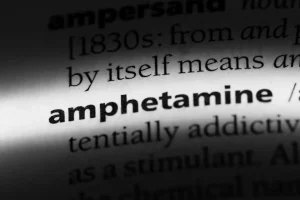Alcohol withdrawal seizures can occur after someone has been drinking heavily for a few days or longer. If they suddenly stop drinking or cut back, they will typically experience withdrawal symptoms. If you have mild-to-moderate alcohol withdrawal symptoms, you can often be treated in an outpatient setting. During this process, you will need someone to stay with you and keep an eye on you. You will likely need to make daily visits to your provider until you are stable.

Epilepsy and Seizures 24/7 Helpline
The short-term effects of alcohol result from its actions on ligand-gated and voltage-gated ion channels (2–4). Prolonged alcohol consumption leads to the development of tolerance and physical dependence, which may result from compensatory functional changes in the same ion channels. Abrupt cessation of prolonged alcohol consumption unmasks these changes, leading to the alcohol withdrawal syndrome, which includes blackouts, tremors, muscular rigidity, delirium tremens, and seizures (5,6). Alcohol withdrawal seizures typically occur 6 to 48 hours after discontinuation of alcohol consumption and are usually generalized tonic–clonic seizures, although partial seizures also occur (7,8). Not everyone who experiences alcohol withdrawal will experience delirium tremens.
Don’t Abuse Alcohol
The timeframe will be different for everyone, but seizures will normally start within the first 72 hours. If someone has a seizure from alcohol withdrawal symptoms, you should move things out of the way that they could accidentally hurt themselves with during the seizure. You should also call 911 and get emergency medical help as soon as possible, even if the seizure has stopped. After the seizure, you should position them on their side and ensure that their airway is clear while waiting for emergency assistance. Medical professionals often recommend that people with epilepsy avoid or consume a moderate amount of alcohol.
Patient Profile

Alcohol withdrawal seizures are similar to tonic-clonic seizures, which are often seen with issues like epilepsy. The first may involve a loss of consciousness with increased muscle rigidity. The second phase involves rapid tightening and relaxing of the muscles, which involve convulsions that can lead to serious injuries. You will typically require hospitalization if you experience seizures related to alcohol withdrawal. While in the hospital, a medical team can monitor any other symptoms you may experience, as well as treat your seizures.
Can Using Meth Once Cause Withdrawal?
- It is hypothesized that seizure activity propagates from the IC to deep layers of the superior colliculus (a major output of the IC) to trigger the wild running phase of the audiogenic seizure.
- It’s suggested that repeated alcohol withdrawal seizures can make the brain more susceptible to seizures.
- Full-text articles were obtained from this list and the cross-references.
- Alcohol dependence may be treated with various options, including medications.
- This review summarizes literature regarding the identification and management of alcohol withdrawal in the ED as well as techniques for facilitating transitions of care for individuals experiencing alcohol withdrawal.
- The relationship between alcohol and seizures was first mentioned by Hippocrates (34), as well as by the Romans, who even put a name to it, morbus convivialis, or “disorder related to partying” (30).
The likelihood of experiencing seizures increases significantly after consuming three or more alcoholic drinks. Binge drinking and subsequent alcohol withdrawal can lead to status epilepticus, a severe, life-threatening condition that can be fatal. Symptom-triggered protocols can be complicated by co-morbid psychiatric or medical illness given that there may be significant overlap between symptoms of alcohol withdrawal and a primary alcohol withdrawal seizure psychotic or mood disorder (anxiety, agitation, hallucinations). Similarly, several of the symptoms of AWS may be seen independently in medically ill patients (nausea, vomiting, headache, diaphoresis) and in those with delirium due to a separate etiology (clouded sensorium, perceptual disturbances). Furthermore, some patients may exaggerate the subjective symptoms of alcohol withdrawal in order to receive more benzodiazepines.

Clinical spectrum
In these models, the withdrawal seizures are triggered by neuronal networks in the brainstem, including the inferior colliculus; similar brainstem mechanisms may contribute to alcohol withdrawal seizures in humans. Alcohol dependence results from compensatory changes during prolonged alcohol exposure, including internalization of GABAA receptors, which allows adaptation to these effects. Withdrawal seizures are believed to reflect unmasking of these changes and may also involve specific withdrawal-induced cellular events, such as rapid increases in α4 subunit–containing GABAA receptors that confer reduced inhibitory function. Optimizing approaches to the prevention of alcohol withdrawal seizures requires an understanding of the distinct neurobiologic mechanisms that underlie these seizures. In a meta-analysis of controlled trials for prevention of alcohol withdrawal seizures, a highly significant risk reduction for seizures with benzodiazepines compared to placebo was demonstrated (19). For the purpose of reducing risk of seizures and rebound withdrawal symptoms after discontinuation, long-acting drugs should be preferred to short-acting ones (36; 19).
When to Contact a Medical Professional
When patients present repeatedly with typical alcohol withdrawal seizures, imaging is not necessary unless changes in seizure type and frequency, seizure occurrence more than 48 hours after cessation of drinking, or other unusual features are present. Moderately severe AWS causes moderate anxiety, sweating, insomnia, and mild tremor. Those with severe AWS experience severe anxiety and moderate to severe tremor, but they do not have confusion, hallucinations, or seizures. When not properly treated, AWS can progress to delirium tremens (Table 38–10).
What are the recommendations for alcohol use with epilepsy?
It’s suggested that repeated alcohol withdrawal seizures can make the brain more susceptible to seizures. This means that someone who has had seizures induced by binge drinking might start to experience spontaneous epilepsy seizures, regardless of whether they’re drinking or not. “Alcohol-related seizures” describes all types of interrelationships between seizures and chronic alcohol abuse in adults (44). On the other hand, situations that are consequent to alcohol abuse and acute withdrawal are where seizures are most often encountered. Alcohol withdrawal seizures are caused by abrupt cessation of heavy alcohol consumption (44). For a comprehensive discussion of seizure types related to alcohol, see McMicken and Liss (37).
What causes alcohol withdrawal seizures?
- It is important to evaluate for suicide risk in every patient during the initial assessment (70).
- Alcohol withdrawal causes a range of symptoms when a person with alcohol use disorder stops or significantly decreases their alcohol intake.
- Withdrawal seizures can occur in patients within just a few hours of alcohol cessation.
- Some people describe a general “funny feeling” that happens in this phase.
However, in the presence of co-morbidities shorter acting drugs such as oxazepam and lorazepam are used. A ceiling dose of 60 mg of diazepam or 125 mg of chlordiazepoxide is advised per day.[18] After 2-3 days of stabilization of the withdrawal syndrome, the benzodiazepine is gradually tapered off over a period of 7-10 days. Patients need to be advised about the risks and to reduce the dose, in case of excessive drowsiness. In in-patient settings where intense monitoring is not possible due to lack of trained staff, a fixed dose regimen is preferred. Stopping alcohol consumption suddenly after extended periods of heavy drinking can trigger alcohol withdrawal seizures. Tonic-clonic seizures – once called grand-mal seizures – are the most severe and frequent type of alcohol induced seizure.
